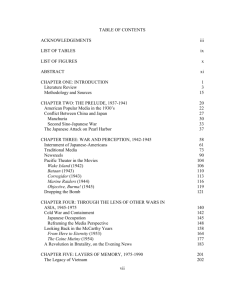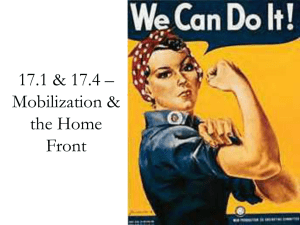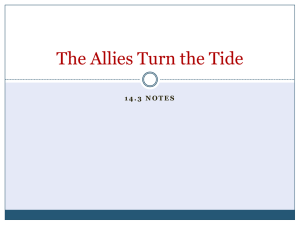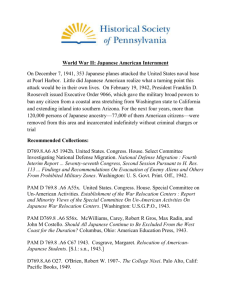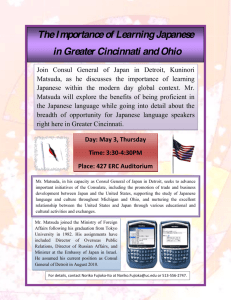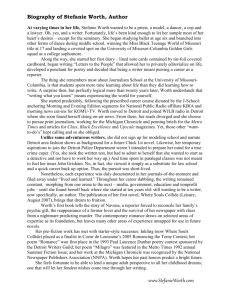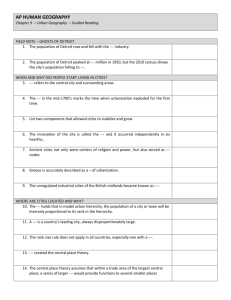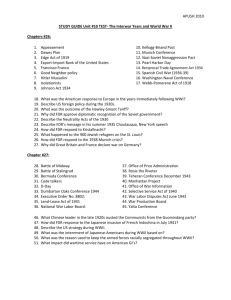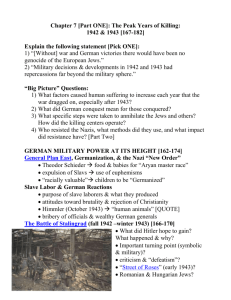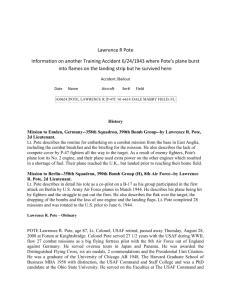America's Home Front During World War II
advertisement
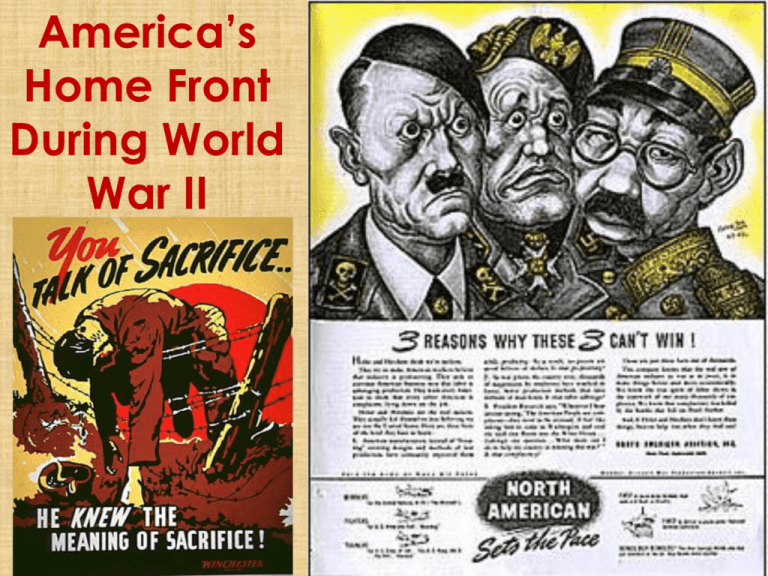
America’s Home Front During World War II I. America Mobilizes for War A. War Powers Act • Gave FDR unprecedented power • 15,000,000 men & 350,000 women served B. Key Organizations • War Production Board • Office of War Mobilization • Office of Censorship • WAC & WAVES (women’s corps) I. America Mobilizes for War C. War Production • 97% rubber lost so $700 million spent on synthetic rubber plants=by 1944, 80% synthetic rubber • Rationing Program • U.S. produced more than Axis combined by 1945 D. Expansion of Federal Government • 1940: 9% 1945: 46% ($9 billion to $98 billion) • Federal employees: 1.1 million to 3.8 million • 67% federal money went to top 100 largest firms • Federal spending: 1788-1941 $170 billion 1942-1945 $320 billion I. American Mobilizes for War E. Union Issues • Membership rose 50% • “no-strike” pledge generally followed • Few exceptions known as “Wildcat” strikes F. Manhattan Project • 120,000 secretly employed, led by J. Robert Oppenheimer (“Now I am become death, the destroyer of worlds.”) • $2,000,000,000 spent on project • Final test completed at Alamogordo, NM • Felt as far as 100 miles away I. America Mobilizes for War G. Propaganda & Politics • Hollywood focus (attendance increased 67%) • Office of Censorship (14,000 employed) • Didn’t release Pearl Harbor casualty records until 1943 • Released few pictures of dead soldiers (first in 1943) II. Change in American Society A. GI Bill of Rights •Allowed approx. 2 million returning GI’s to receive higher education •Also paid living allowances & helped to purchase homes •Helped change U.S. from blue collar society to white collar II. Change in American Society B. Social Mobility •Pacific Coast Growth •50% of all plane & ship production occurred in California •2 million relocated to California •6 million moved to cities Another Great Migration to Detroit and No. & So. California II. Change in American Society C. Women & the Family •350,000 women served in the armed forces •6 million women went to work in war industries (75% were married) •Only received 65% of male wages •Rosie the Riveter became symbol of the woman worker II. Change in American Society D. African Americans •Randolph’s March on Washington •FDR issued Executive Order 8802 •Double V Campaign •NAACP membership rises (1000%) •CORE established to challenge Jim Crow The “Fight of the Century” Joe Louis vs. Max Schmeling •1936 •1938 rematch 1936 Berling Olympics •Jesse Owens II. Change in American Society •One million blacks served in WWII •761st Tank Battalion & 99th Pursuit Squadron •Integrated military training began in 1944 •B.B. King “I used to sing gospel songs until I joined the army, then I sang the blues.” •Detroit race riot in 1943 saw 25 blacks, 9 whites killed and $2 million damage Detroit Race Riot, 1943 34 dead, 1800 arrested Two rumors circulated which exacerbated the conflict. At a nightclub in Paradise Valley which catered to the black population, a man who identified himself as a police sergeant alerted the patrons that "whites" had thrown a black woman and her baby over the Belle Isle bridge. The enraged patrons fled the club to retaliate. They looted and destroyed white-owned stores and indiscriminately attacked anyone with white skin. Similarly, white mobs had been stirred up by a rumor that a black man had raped and murdered a white woman on the bridge. The white mob centered around the downtown Roxy Theater which harbored a number of black movie-goers. As the patrons exited the theater, they found themselves surrounded by gangs who attacked and beat them. Detroit became known as “America’s Arsenal of Democracy because of its war production. Because of FDR’s executive order requiring equal rights in hiring, Detroit became a center for African American migration. Despite 200,000 African Americans living in Detroit, the KKK as well as local white leadership contained their living area into a place known as “Paradise Valley.” Racial tensions boiled over, as they had in numerous other cities such as Los Angeles, Mobile, Alabama and Beaumont, Texas. Arrests during 1943 Harlem riot The shifting social scene in the U.S. was not without conflict II. Change in American Society E. Native Americans •25,000 served in military •Most famous were the Navajo “Code-Talkers” •75,000 worked in war industries II. Change in American Society F. Mexican Americans •Bracero Program •200,000 temporary workers came from Mexico (100,000 in CA) •Large numbers returned illegally, while many never returned to Mexico II. Change in American Society •Zoot Suit Riots “pachucos” vs. sailors LA passed law making zoot suits illegal •350,000 served in military Mexican Americans stripped of zoot suits during the riots, Life, 1943 Sailor arrested during the riots, Los Angeles Daily News, 1943 Executive Order 9066 Japanese American store owner posted this sign on December 8, 1941 II. Change in American Society G. Japanese-Americans •Executive Order 9066 •War Relocation Authority •112,000 held (67% were U.S. citizens) Japanese Americans interned: 120,000 Japanese Americans that fought for Japan in WWII: 2,000 -7,000 442nd Combat Regiment was the most decorated unit of WWII. It consisted mostly of Japanese Americans. Loyalty Oath’s requirement to renounce allegiance to the emporor Map of Japanese-American Internment Camps Manzanar, CA Relocation Camp Heart Mountain, WY Minidoka, ID Topaz, UT Rohwer, AR Jerome, AR Relocation Camp Pop. Manzanar, CA Tule Lake, CA Poston, AZ Gila River, AZ Granada, CO Max. 10,046 18,789 17,814 13,348 7,318 Max. Pop. 10,767 9,397 8,130 8,475 8,497 United States Army manual: How to tell the Chinese from the Japanese Korematsu v. the United States (1944) “When viewed in its historical context, the Government’s position is part of a pattern whereby the executive branch curtails civil liberties much more than necessary during wartime and seeks to insulate its actions from any judicial scrutiny… Only later errors are acknowledged and apologies made.” -Fred Korematsu Reagan signs the Civil Liberties Act of 1988 In 1988, the 62,000 surviving internees received a $20,000 stipend and an apology from the United States government.
